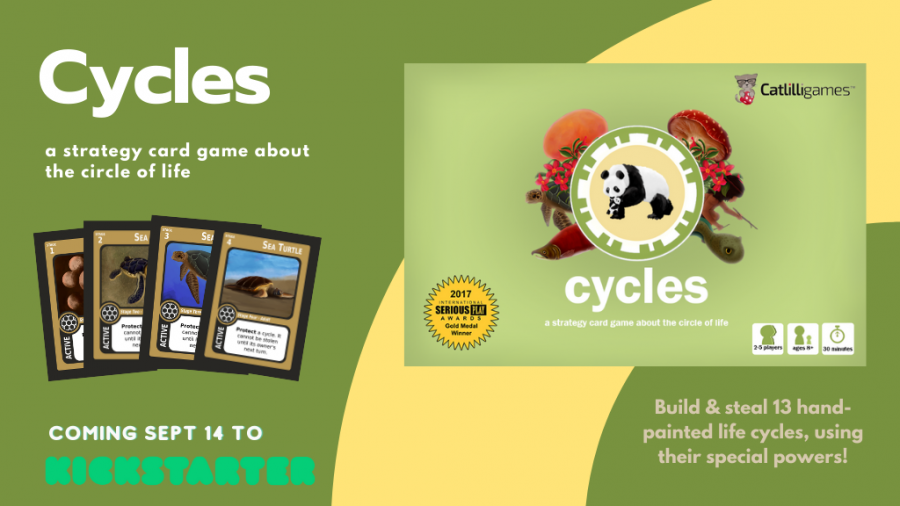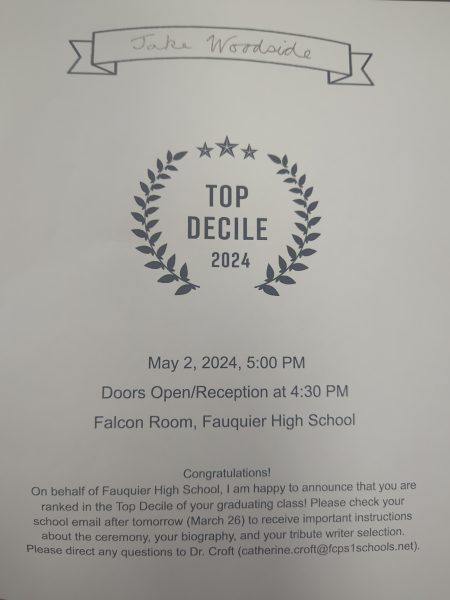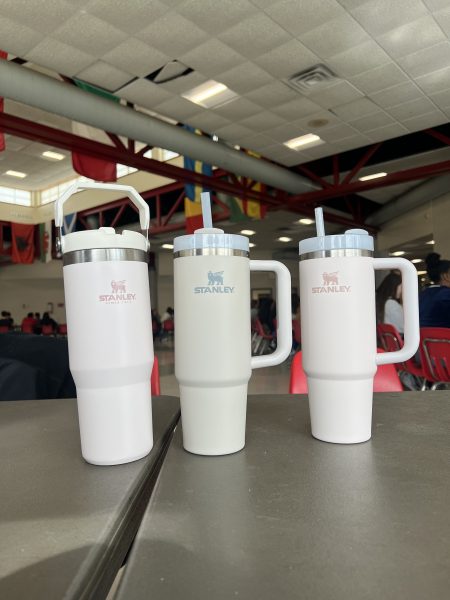Croft Releases New Card Game
Catherine Croft launched her first game, “Cycles,” to Kickstarter on September 14.
Catherine Croft published “Cycles” to the creative project site, Kickstarter, on Tuesday, September 14. “Cycles” is a 2-5 player card game. The goal is to capture as many life cycles as possible. “Cycles” will be available on Kickstarter for $20. Croft has a month to reach her set goal of $2,300.
“Cycles” is based on the life cycle and includes 13 different cycles with 4 stages each. “Cycles” can be played as an easy version for younger players or a complicated version for older players. “It’s a strategy game for older people and then just a teaching the cycles game for younger people,” said Croft.
The original “Cycles’’ came out six years ago. This was Croft’s first game, co-designed with her game partner Jon Nordolilli. It won a gold medal in the 2017 Competition for Educational Games. The Kickstarter version of “Cycles” is an updated version that was designed by Croft and her team of George Mason gaming students.
“I’m very analytical,” said Croft. “I never made my own game until I met my partner. I met him while I was teaching at a science event. He was an engineer, now a teacher and he had made his own game.” Croft had already been designing games for her classes but after learning about Nordolilli’s games, her interest was sparked, so they teamed up to create their own gaming company, Catilli.
There is a pre-launch page for “Cycles,” for subscriptions and updates, before the official launch. Once it launches, there are different levels of support including donations, purchases and a Teacher Edition with lesson plans and learning standards. Croft has 11 different games, but chose to release “Cycles” on Kickstarter because “it’s our most complicated game and in the board game world everyone’s trying to, you know, outsmart everyone.”
Croft said it’s scary to get companies to publish her games. “I’ve been doing this for a long time. It’s really heartbreaking because I get a lot of ‘yeses’ and then three months later they say ‘no,’” said Croft. One was almost published to Hasbro’s Gaming but later turned down. Even after being denied, Croft stays optimistic. “It keeps happening, but it’s all about persistence, right? It taught me resilience,” said Croft.
Croft notices that if she mentions “science” or “education” to gaming companies during pitches “they don’t like it, but if it’s the exact same game and I don’t say educational, then they like it.” Croft believes that when people hear the words “education” with games they think, “Oh that’s boring,’ and most companies don’t know how to advertise it.”
Croft has always loved games because “they’re like a puzzle”. Croft regularly includes games in her classes and believes they “are really effective to use in class if they’re fun.” She’s even used an earlier prototype of “Cycles” in her class. “I always wanted to use games in class, and then I started making my own. Just depending on the lesson.”
Thanks for reading The Falconer. We're happy to provide you with award-winning student journalism since 1963, free from bias, conflicts of interest, and paywalls. We're able to continue with the generous support of our local community. If you're able, please consider making a donation. Any amount is incredibly helpful and allows us to pursue new and exciting opportunities.

Hi, my name is Sabrina Brooks, and I am a senior. I am in Journalism II and this is my second year writing for The Falconer. I have four siblings, and...










